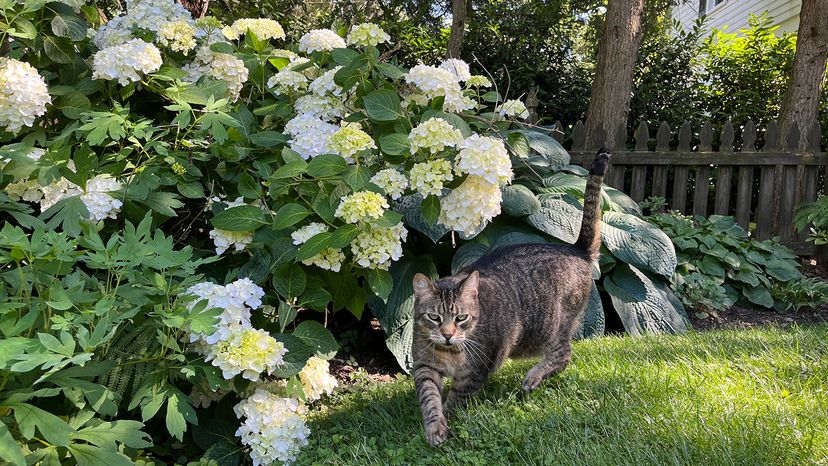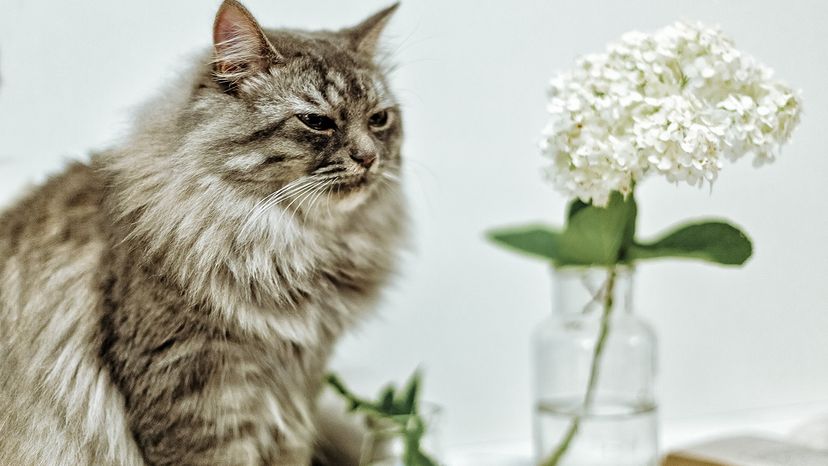
Are hydrangeas poisonous to cats? Yes, extremely.
While admired for their colorful blooms and lush, ball-shaped flowers, hydrangeas are considered toxic plants for cats. If a cat eats part of a hydrangea plant, especially the leaves or flowers, it may suffer from hydrangea poisoning.
Advertisement
These plants contain cyanogenic glycosides, a compound that can release cyanide when metabolized. The most common form, called amygdalin, can lead to serious issues in your cat’s digestive system and beyond.

